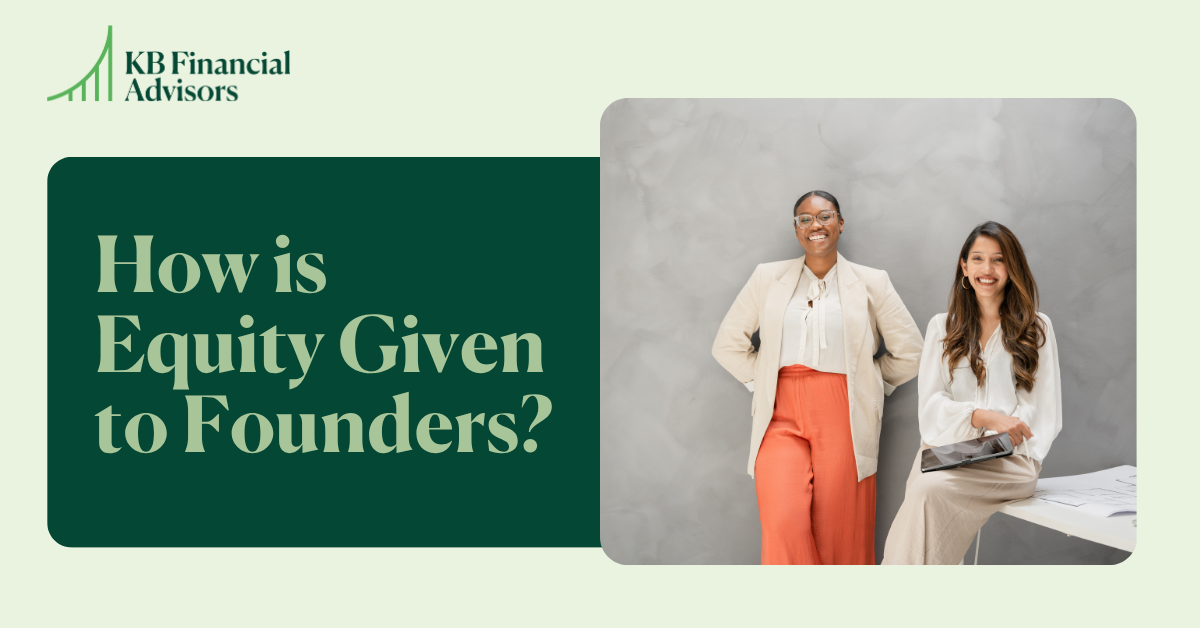Here’s how to make your job something you choose rather than something you need.
We discuss financial independence a lot on this blog, but what exactly do we mean by that?
For starters, financial independence is the core goal that underpins all our advice.
Many people might associate the term with financially supporting yourself without help from your parents or a partner, but that’s not the kind of financial independence we’re talking about.
In short, financial independence is when your job becomes something you choose rather than something you need.
If you’re reading this, odds are you’re a busy professional working in tech, and it’s likely you need to continue working to afford your current lifestyle, but don’t be so quick to think financial independence is unrealistic for you. I guide busy professionals toward financial independence every day.
As cheesy as it may sound, the first step to becoming financially independent is believing you can do it. Think about how far you’ve come already. Where were you ten or 15 years ago? It’s likely you’re in a completely different place that was unimaginable for the younger version of yourself. Play your cards right and the future version of you may just look back on today as your major financial turning point.
Once you start believing you can reach financial independence, the second step is to act. This leads into what I call the “compound return on good decisions.” You constantly have the opportunity to make choices with your career and money. Those decisions have a cumulative effect, and being proactive can make those choices compound in your favor.
I’ll get more granular with the math behind financial independence in a future blog post, but continue reading this one to build a solid foundational understanding of the topic. I’ll define financial independence, discuss common obstacles, and illustrate what reaching this milestone can look and feel like for you.

What financial independence feels like
Another name for financial independence is financial freedom, and for good reason. Achieving this monetary milestone liberates people in two key ways:
Freedom from worry. I’ve noticed common characteristics among my new clients who are early in their financial independence journey: They tend to feel jittery about their money and have a multitude of questions and worries about it. Once we reach a few years of working together — and especially once they reach financially independent status — they exude calmness. They’re free from worrying about losing their job or being stuck in it when they’re ready to leave. Ultimately, they know they’re going to be okay.
Freedom to choose. This ties back to my definition of financial independence: when your job becomes something you choose rather than something you need. A client of mine who’s financially independent said it best: “I just like knowing I can quit my job.” She still works because she chooses to, but if she has a change of heart tomorrow, she has the freedom to choose to quit.
Many of our financially independent clients ask “What if I…?” and they’ll fill in the blank with a hypothetical event that either involves them having less income or more expenses (e.g. “What if I buy a lake house?”). More often than not, I crunch numbers and show them that they’re fully capable of choosing to live out their aspirations while maintaining their financial independence.
Overcome those nagging fears
When it comes to finances, being a tech employee is a double-edged sword. It’s great because there are lots of career opportunities in this industry, many of which are very well paid. However, the downside is all your eggs are in one basket, and you can lose 100% of your income overnight if you lose your job. And sure, tech employees may receive equity compensation, but it gives them little ownership and control in the company that employs them.
The downsides of working as an employee can stoke a lot of fear in professionals, and I’ve seen it firsthand with my newer clients.
One of the primary anxieties I see clients grapple with is the fear of financial ruin, alongside the fear of failing in front of your loved ones and colleagues. Those can both feel humiliating. Going broke is another valid fear. Unlike business owners who can retire with an asset (their business), those who exchange their skills for a paycheck can end up with nothing if they don’t play their cards right. This possibility can make you fear not having any financial accomplishments to show for all the time and energy you’ve put into your career, come retirement. Lastly, many of my newer clients feel on edge about whether they’re going to be okay financially, so much so that it becomes a nagging thought in their mind.
The best way to overcome these common fears is by taking steps toward financial independence, which is easier said than done. As your financial situation becomes more complex (a positive sign that you’re going in the right direction), odds are you’ll often be dealing with things you don’t have experience with or guidance for. And while turning to your coworkers for help may seem like a good idea, they don’t usually give you the full picture or the best advice. Coworkers usually speak of their finances aspirationally (the Instagram, filtered version of their money) and they conveniently leave out their blunders. It ties back to the fear of embarrassment I mentioned earlier — we all experience it.
Once you overcome your fears, make sure you prioritize taking action. Unlike work, your finances aren’t driven by hard deadlines or a demanding boss. You’re on your own arbitrary timeline, and you need to hold yourself to it. The closer you get to financial independence, the duller your financial fears become.
3 obstacles to financial independence
The journey between where you are today and the day you reach financial independence can be divided into four steps: career, taxes, choice, and investments. Put simply, you receive pay for your work, you pay taxes, you choose what to do with your remaining income, and you invest some of it. Through these four steps, your goal is to accumulate investments that can replace your salary and make your career optional.
The first step is your career. When we calculate what financial independence would mean for you, we’re essentially figuring out your future salary. My client, Casey, makes $450,000 per year. She and her spouse are 18 years away from turning 65, the quintessential retirement age. If Casey continues to work for the next 18 years, her remaining career will be worth $8.1 million (calculated by multiplying $450,000 by 18 years). While her income is high, you won’t have an accurate view of her finances until you see the full picture. In other words, what taxes will she pay, and what choices and investments will she make?
The three steps that follow career (taxes, choice, and investments) are obstacles to financial independence that you’ll want to beware of:
1. Taxes
The way taxes impact your finances largely depends on your country and state of residence. It’s normal to find taxes stressful but if you think about it, paying taxes is a good problem to have because it means you’re making money. Despite taxes’ power to hinder your financial goals, I always advise people to be tax aware rather than tax afraid.
Busy professionals, like our clients, are targeted by the income tax system. When our elected officials argue that the rich should pay their fair share, you’re the kind of person they’re talking about. Income taxes make up the vast majority of taxes collected, and they’re disproportionately paid by busy professionals.
At KB Financial Advisors, we prepare tax returns for our clients, Casey included. Her effective tax rate (calculated by dividing total taxes by taxable income) gives us a good estimate of how much of her $8.1 million in future income will go toward tax payments. She currently has an effective tax rate of 28% federal and 9% state, totaling to 37%. That means Casey can expect to pay over $2,997,000 (about 37% of her $8.1 million income) to taxes. Post tax payments, Casey would be left with $5,103,000. That’s a significant amount of money but expenses like housing, cars, children, and vacations can add up over the years. And if Casey’s not careful, she can easily spend all her money and be no closer to financial independence than she is today. What Casey did correctly is she had her taxes prepared by a team who specializes in high-income professionals’ finances.
Another easy way to let taxes get in the way of your path to financial independence is by doing them yourself or with the wrong preparer. The main reason we prepare taxes for clients is because mistakes are costly. We’ve seen countless tax horror stories where clients had worked with preparers who didn’t have experience with the nuances of high-income earners’ taxes. One story that comes to mind involves a client we’ll call Rick. Rick preferred to continue having his friend prepare his taxes, but he invited me to review everything before they were filed. A couple years into working together, Rick had a niche tax situation involving stock options. His tax preparer needed to adjust the income on his 1099-B form, but they didn’t. Had we not spotted the preparer’s error, Rick would have paid taxes on the same stock options twice, to the tune of $250,000.
If you overpay on your taxes, you can’t get that money back. That’s reason enough to work with a preparer who specializes in high-income professionals’ taxes.
2. Choice
Choice is another obstacle that can hinder your financial progress. You’re incredibly busy, and the pressure and motivation your career gives you is what drives your work. That’s actually a good thing, considering your career is what makes financial independence a possibility for you in the first place.
The problem is you put so much energy into work that you don’t have much of it left in your personal time. I’ve seen clients put off making a financial plan because it requires time and brain power, which can be difficult to muster when you’re spent.
The paradox of choice also plays a role in putting off financial planning. This observation suggests that rather than making people happy and ensuring they get what they want, having many options to choose from can actually cause people stress and complicate decision making. Decision fatigue is also to blame. It’s the idea that after making many decisions, your ability to make additional decisions over the course of a day becomes worse. You decide on so many choices every workday that by the time you’re off work, you’re almost too tapped out to decide on dinner. It’s no wonder you’ve procrastinated making your financial plan.
One of the best things about working with a financial advisor is you get to offload a lot of the time and energy to an expert. I often see clients who are impressively organized in their jobs but when it comes to their finances, they lose steam and things get messy. Prioritizing your financial plan isn’t easy but I urge you to carve out time in your schedule to work on it with a financial advisor. It’s smarter, more efficient, and you’re more likely to make your financial plan sooner rather than later.
3. Investments
The last challenge you’ll face is the stock market.
Let’s assume you’re constantly increasing your income., you’re working with a qualified tax advisor who’s helping you win the tax game, and you’ve made a solid financial plan. All that’s left to do is build an investment portfolio to replace your salary.
Compound interest is what makes investing a powerful wealth-building tool. Two factors play a role here:
- Time that money is invested
- Rates of return you receive while the money is invested
At its best, compound interest adds up over the course of your career and moves you towards financial independence. However, the downside of the stock market is that both time and rate of return can be destroyed in an instant, with a single bad move. I’ll run through two client examples that come to mind.
In 2019, I worked with a client who was preparing to buy a house. We’ll call him Jeff. It was a good year for stocks and bonds. Because he was gearing up for a big down payment, we invested his money with a conservative asset allocation. At one point, Jeff said he was unhappy about how his safe investments were performing (9%) compared to more risky options like the S&P 500 (15%). I reminded him that we chose a conservative route given his goals, and I reassured him that his investments were performing very well. I also told Jeff it’s hard to compare his asset allocation to the S&P 500, especially when considering market crashes. Come spring of 2020, the Covid pandemic caused a massive stock market crash. In April, Jeff emailed me admitting that in a panic, he impulsively sold his holdings to cash. He irreversibly destroyed several years’ worth of compound interest in an instant.
In another example, a client we’ll call Tyler started working with us in 2020. We put together a plan for his stock options, including a target price and plans for selling and diversifying out of his options. In 2021, Tyler decided to disengage from us. The stock continued to climb throughout 2021 before crashing by year end and continuing to dwindle into 2022. At the end of 2022, Tyler reengaged with our team and caught us up on his finances, revealing he didn’t continue following the financial plan we made with him. He stopped selling his options once the stock went up in 2021, and held onto them as the stock fell in 2022. Tyler then took the cash from the sales he’d made per our financial plan from 2020, and invested those into other tech stocks. Conservatively speaking, I estimate the financial choices Tyler made on his own cost him $1.5 million in 2022. To put that into perspective, $1.5 million exceeds how much he would have paid to work with us for a hundred years.
It’s unfortunate that hard-working professionals like Tyler and Jeff lost their hard-earned money over rash decisions. I tell these stories not to stoke fear, but in the hopes that you can learn from their mistakes and have a smoother road to financial independence.
What do the numbers look like?
When it comes to the numbers, financial independence looks like different things to different people. That’s why I so strongly recommend working with a professional to figure out a plan that fits your unique needs.
However, if I had to give a generalized number, in its simplest form, you reach financial independence when your investment portfolio is ten times your salary. We can apply different rules and tests to an investment portfolio of that size and there’s a good chance that for the rest of your life, you can live on that portfolio alone.
Begin your financial independence journey
As someone who works with financially independent people, I must say, it’s a special position to be in. I find so much joy seeing people use their freedom in interesting and enriching ways. It’s what I want for every client and it’s what I want for you.
Once you take the first step of believing in yourself, take the second one: Work alongside an experienced financial advisor who’s helped professionals like you and understands your unique challenges.
It can be hard to tell how you’re doing financially, and an experienced advisor like myself can tell you exactly that. It’s not the first time I’ve dealt with your situation or looked at numbers similar to yours.
Book a call today to start your financial independence journey.



